Contacting possible employers
You might contact an employer you’d like to work for to ask if they have jobs available or to get more information about a job.
Writing to an employer
Whether you're writing to apply for a job or asking about future work, you want the employer to notice you. A good email or letter:
- has a clear purpose
- uses straightforward language and short sentences
- is clearly set out.
Asking if they have any jobs available
When you write to an employer to ask if they have jobs available:
- say straight away that you’re looking for work
- say why you would like to work for their business
- show that you already know some things about their business or the industry they work in
- include information about your skills, qualities and experience – but keep it short
- say why you would be a valuable employee for their business.
If you have a resume, attach it to your email or include it with your letter. Find out more about creating a resume.
Asking for more information about a job
If you want to contact an employer to get more information about a job:
- say which job you’re asking about. Use the job name and the reference number, if there is one in the job advertisement
- ask your question. If you have more than one question, you could put them in a list.
Tips for writing a formal letter
You might choose to write a formal letter rather than an email when:
- you’re writing a cover letter with a job application
- you’re writing to accept or say no to a job offer
- an employer has asked you to write about why you want the job.
It’s rare that you need to post a letter to an employer, but you will need to type it. You can then attach it to an email or print it out if needed.
The language in the letter is usually more formal than in an email.
Setting out your letter
The start of your letter should include:
- your name and address
- the date when you’re writing
- the name of the person you are writing to
- the position title of the person you are writing to
(You can usually find out these details by phoning the business and asking who you should write to.) - the name of the business
- the postal address of the business
- a greeting such as ‘Dear Ms/Mr…’.
The main part of the letter should include three or four paragraphs. These should cover things like your experience and why you want to work for them.
At the end of the letter, include:
- what you would like the person to do after reading your letter. For example, you could write:
Thank you for considering my interest in working for your organisation. I look forward to hearing from you.
- a sign-off such as ‘Yours sincerely’, followed by your name and signature.
You can find out more about writing a letter with an application at Writing a job application and cover letter.
There are also many free samples of letters available online.
Before you hit send
Before you send your letter, have someone else read over it. They might pick up small errors or suggest how to improve it.
Phoning an employer
If you tend to get anxious or nervous calling people you don’t know, it can help to prepare notes and set out a plan before calling an employer.
Before making your call
- Find out as much as you can about the business you’re calling.
- Write down the questions you will ask or the information you need to give.
- If you’re calling to ask if they have jobs available, write a list of your skills, qualities and experience.
- Think about what you’ll say if you reach voicemail. Prepare a short message.
Have everything you need ready, such as:
- your notes
- a blank notepad and pen, for taking notes during the call
- a glass of water – taking a sip of water during a phone conversation can help you feel less nervous.
Take a few deep breaths to help you relax, then call the number.
During your call
- Say your name and the name of the person you would like to speak to. If you don’t know their name, ask to speak to the manager or the person responsible for staffing or recruitment.
- Say why you’re calling, for example you’re looking for work or you’re calling for more information about an advertised job.
- Remember that it is okay to ask the person to slow down or repeat something you’ve missed. You can also take notes while the person is talking.
- At the end of the conversation, repeat any actions or follow-ups that you both agreed to, if there are any. Thank the person for their time.
If things get tricky during the call
- If you begin to feel nervous during the call, take some deep breaths. You can be quiet for a moment to gather your thoughts.
- If you still feel nervous it’s okay to ask if you can phone back at another time. This will allow you to get together the information you need.
After your call
- As soon as you get off the phone, make notes about the conversation.
- Write down the things you need to do and when you need to do them.
Calling to ask if they have jobs available
There are some extra things to note when you are calling to ask an employer if they have jobs available.
During your call:
- say why you would like to work for their business. This is a chance to show that you already know some things about their business or the industry they work in
- talk about how your skills, qualities and experience suit their type of business
- say why you would be a valuable employee for their business
- offer to send them your resume.
Getting help
If you have an Inclusive Employment Australia provider, talk to them about any help you might need to contact an employer. If you are an NDIS participant, you can also talk to your NDIA planner or Local Area Coordinator about employment supports.
If you are deaf or have a hearing or speech impairment, you can use the free National Relay Service (NRS) to help you make phone or video calls.
Useful Downloads
Related pages
Last updated:
Contacting possible employers

You can contact a business you’d like to work for to:
- learn more about a job you’re interested in
- ask if they have any jobs available.
Writing to an employer

You can send an email or letter to an An employer hires people to work for them. to ask about working for them.
A good email or letter:
- makes you stand out
- explains what you want to know
- uses clear language and short sentences.

If you want to know if they have any available jobs, it’s a good idea to explain:
- that you’re looking for work
- why you’d like to work for their business
- what you already know about their business or An industry is when a lot of businesses do the same work and offer the same services.

You can include a little bit about your:
- skills
- experience.
You can also say what you could bring to their business.
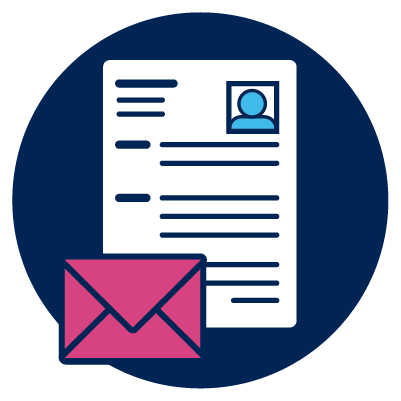
You might want to attach your A resume is a document that lists your work experience, education and skills. People sometimes call this a CV. to the email or letter.
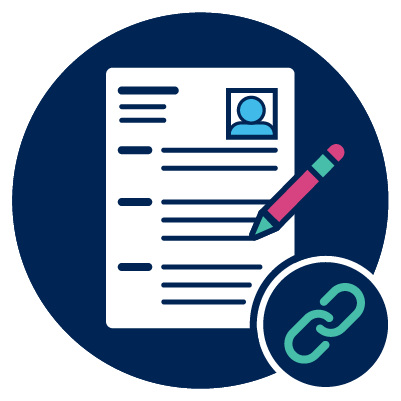
You can find out more on our page about Creating a resume.

If you’re contacting an employer to get more information about a job, make sure you:
- say what the job is
- make your questions clear.
Why you would write a formal letter
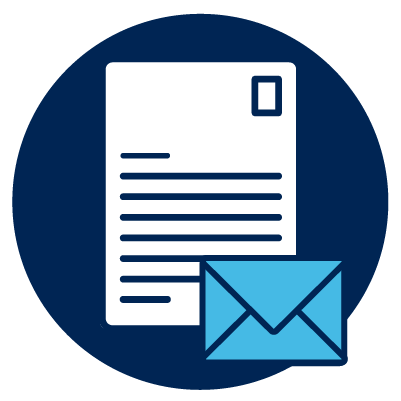
Sometimes you might want to write a formal letter instead of an email.
For example, if:
- you’re responding to a job offer
- an employer asked you to write about why you want a job.
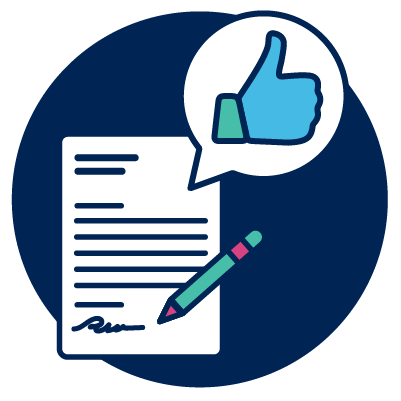
You might also choose to write a A cover letter explains why you want a job and why you're the right person for a job. when you apply for a job.
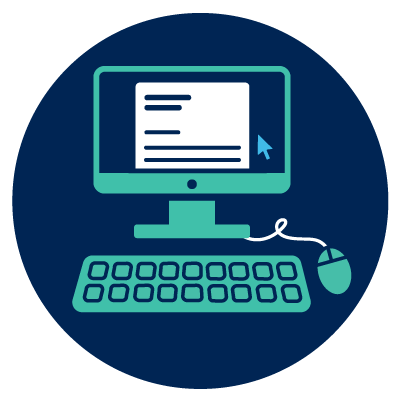
You should use a computer to type a formal letter if you can.
Then you can:
- attach it to an email
- print it out if you need to.
You usually don’t need to send a formal letter to your employer in the mail.
How to write a cover letter
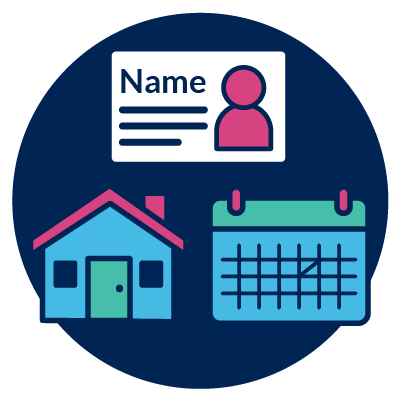
At the top of your letter should include:
- your name and address
- the date of when you write the letter.

At the start you should also include:
- the name of the person you are writing to
- their job title
- the name of the business
- the postal address of the business.
You can call the business to ask about this information.
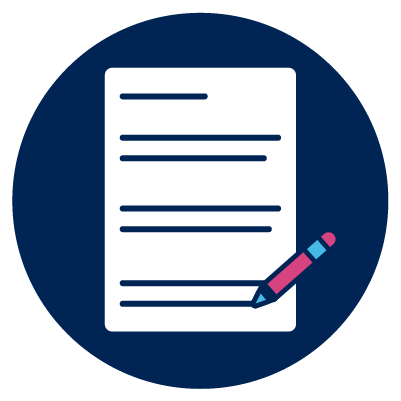
The main part of the letter should include:
- a greeting, such as ‘Dear Ms or Mr’
- three or four paragraphs of information.

These paragraphs should explain things like:
- your experience in other jobs
- why you want to work for them.

The end of the letter should explain that you:
- hope they’ll consider you for the job
- look forward to hearing from them.
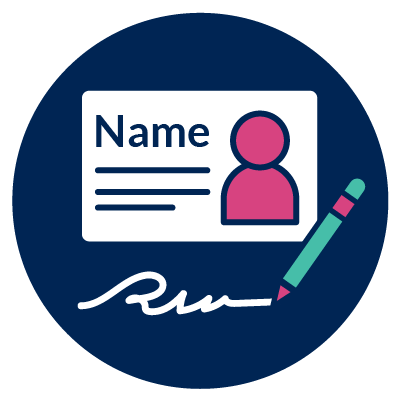
You should end your letter with a sign-off, such as ‘Yours sincerely’.
Then you should include your:
- name
- signature.

Before you send your letter, you should ask someone you trust to read it.
They might help you:
- fix small problems
- think of ways to make your letter better.
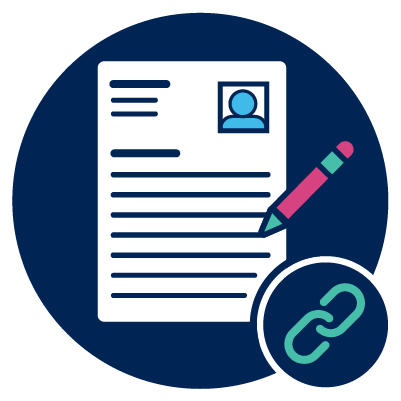
You can find out more about writing a cover letter on our page about Writing a job application and cover letter.
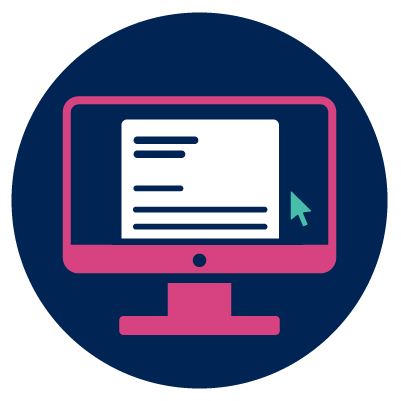
You can also find other examples of cover letters online.
Calling an employer
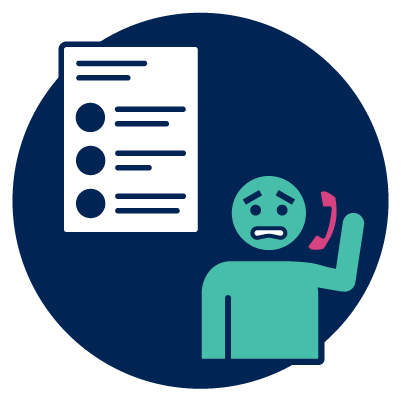
If you worry about talking to an employer on the phone, it can help to make a plan first.
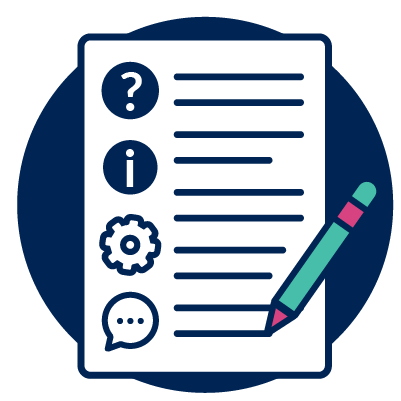
Try to find out as much as you can about the employer’s business before you call.
You can also write down:
- questions you want to ask
- any information you want to give them
- skills and experience you have that show you could do the job
- what you’ll say if you need to leave a voicemail message.
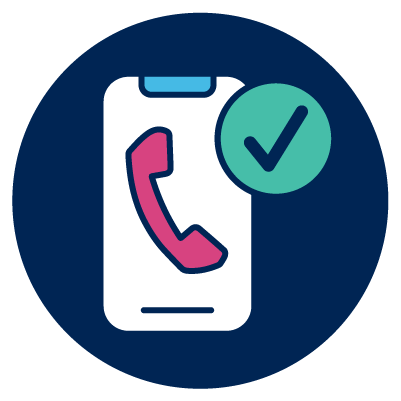
Before you call, make sure you have everything you need.
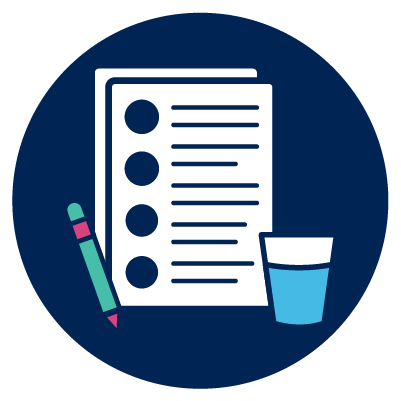
You might want to have:
- your plan
- a pen and paper to take notes with
- a glass of water.

Take a few deep breaths to help you relax, then call the number.
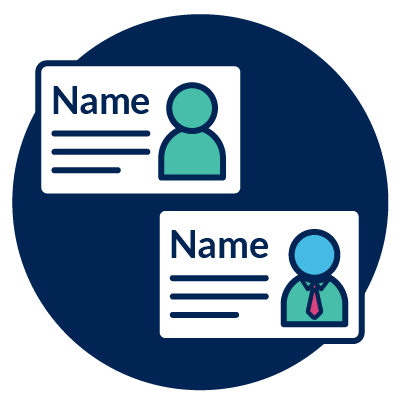
When you call them you can say:
- your name
- who you’d like to talk to.
If you don’t know their name, you can ask to speak to the person who hires new staff.

Then you can say why you’re calling.
For example, that you’re:
- looking for work
- calling for more information about a job.

It’s okay to ask the person to:
- slow down
- say something again if you didn’t hear it the first time.
You can take notes to help you remember later.

If you’re nervous you can:
- take some time to think
- ask if you can call them back another time.
This will give you time to collect any other information you need.

Before you end the call, it is a good idea to repeat anything that you both agreed to do.
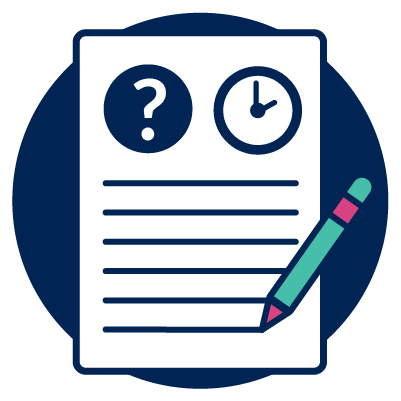
After the call, you might want to write notes about the conversation.
This includes:
- things you need to do
- when you need to do them.
Calling to ask if they have any available jobs

If you’re calling to ask if they have any available jobs, you can also tell them:
- why you’d like to work for their business
- what you already know about their business or their industry
- what you could bring to their business.
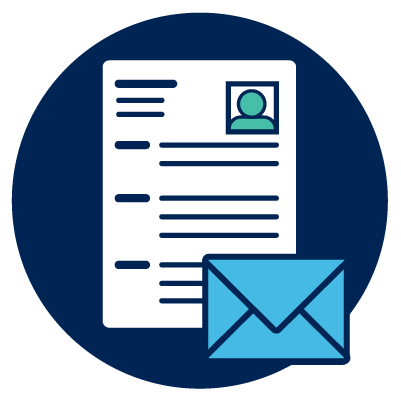
You can also:
- talk about your skills and experience in other jobs
- offer to send them your resume.
Getting support

If you have a Inclusive Employment Australia helps people with disability find and keep jobs. Inclusive Employment Australia providers deliver services to help people with disability do this. you can ask them about support to contact an employer.

If you take part in the National Disability Insurance Scheme (NDIS) you can get support from your NDIS contact, like a:
- NDIA planner
- Local Area Coordinator (LAC).
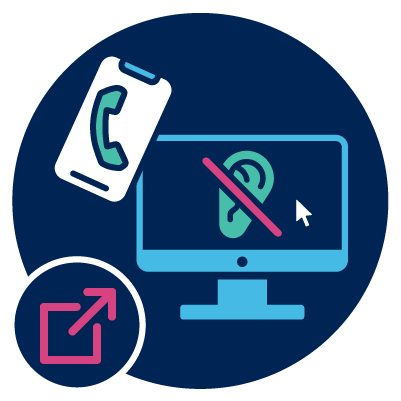
You can visit the National Relay Service (NRS) website for support if you’re deaf or hard of hearing.
Or you can call them.
133 677

